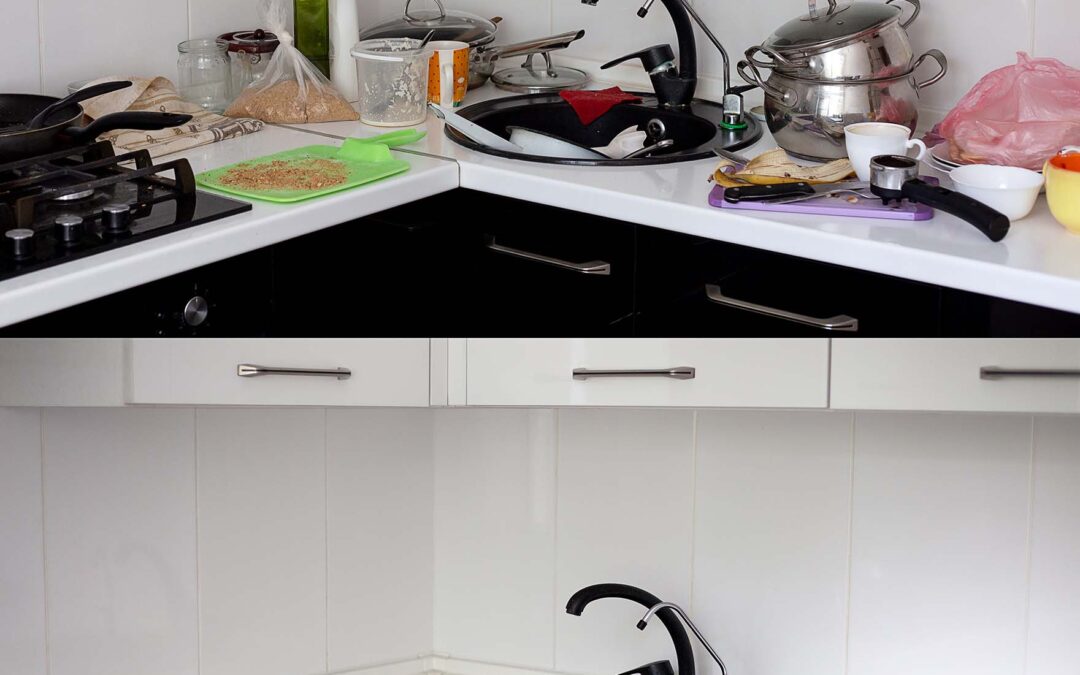February is “Declutter for a Cause” month.
Decluttering your living space can help your mental health. During the month of February, people are encouraged to declutter their homes and donate unused or unwanted items to charitable organizations. If you need some motivation to make room for the new holiday gifts you received, or to organize your closets, now is the time. You know that sweater in your closet that doesn’t look good on you, but you never got around to returning it? How about that extra toaster oven you have stored in your basement for years? Someone out there would certainly enjoy these items that are just taking up space for you. Donating feels good, and so does having an organized living space.
Clear Your Home, Clear Your Mind
Clutter creates chaos, which impacts your ability to focus. It also limits your brain’s capacity to process information. Clutter is a form of visual distraction which increases cognitive overload and can reduce working memory. It can be difficult to focus or concentrate if your space is unorganized and filled with clutter. Research has shown that people are less irritable, less distracted, more productive, and better able to process information in an uncluttered and organized work area.
Staying organized can be a challenge for anyone. It can be daunting for those with ADHD, brain injury, or executive function deficit. Clearing the clutter and developing systems for keeping specific things like keys, phones, and wallets are essential to managing day-to-day activities and improving time management.
It is hard to physically function in a cluttered space, and clutter bombards the mind with excessive stimuli. Addressing the heaps of paperwork and laundry and thoughtfully organizing helps to calm the mind.
Decluttering Improves Mental Health
Several studies show a connection between clutter and mental health conditions, including depression, anxiety, and stress. Messy environments can cause frustration, helplessness, and feeling overwhelmed.
Excessive clutter often leads to feelings of shame, hopelessness, and guilt. These feelings can spiral, making it challenging to find the motivation to clear the clutter. If someone is already suffering from depression, a cluttered home can worsen that depression. It is often a cycle. The more depressed you get, the harder it is to clean and organize.
Decluttering increases self-worth creates healthy habits, and boosts productivity. A clean and tidy home can also improve sleep, boost mood, and promote relaxation.
Clutter Takes Up Space AND Energy
Everything we own and bring into our home takes up some of our time, energy, and space. While some things are worth it, there are surely items that no longer serve us. So, the more things we have, the more we have to clean, organize and manage. Staying on top of it all in a cluttered home takes more time, energy, and effort.
Declutter and Donate—It’s a Win-Win!
It is easy to accumulate all sorts of things we don’t need, yet tricky to let them go when they no longer serve us. There are many reasons people hold onto things, from sentimental to monetary value, but at what cost? More often than not, the things we fear getting rid of negatively impact our lives rather than benefit them. Another reason we hold on to items that are in good condition, but we know we will never need or use again is because we don’t know what to do with them. The answer is simple: donate. Decluttering not only improves your life, but it also improves the lives of others in need.
How to Get Started:
Start Small:
Getting started is the hardest part for most people. So, set small goals. Tackle one task, one pile, or one room at a time.
Ask for Help:
It’s hard to ask, but the irony of it is most people WANT to help! And there’s no shame in it. So put your pride aside and enlist the help of a family member, friend, or even a paid consultant who can help you make decisions. Sometimes getting “permission” from someone else makes it easier to put your items in the donate pile.
Take a Picture:
If you have trouble parting with your child’s baby clothes and books or drawings, take a picture of them. Giving them away often feels like giving up a piece of our identity or past, making it difficult to let go. But you can still have that connection by taking a picture of these things.
Pick a Place to Donate:
The goal is to get the items out of your house and into the hands of someone who needs them. Contact local homeless shelters or donation centers to schedule a drop-off or pick-up.
If clutter is making you feel anxious or depressed, a therapist can help. You are not alone. There is Help, There is Hope, There is a Way!®



